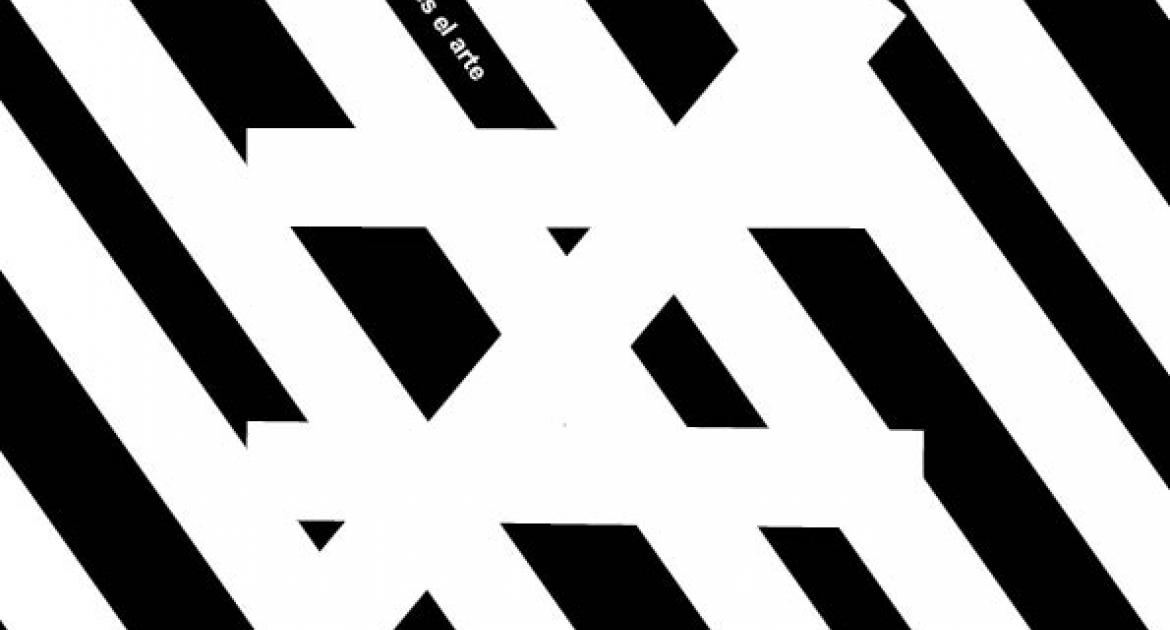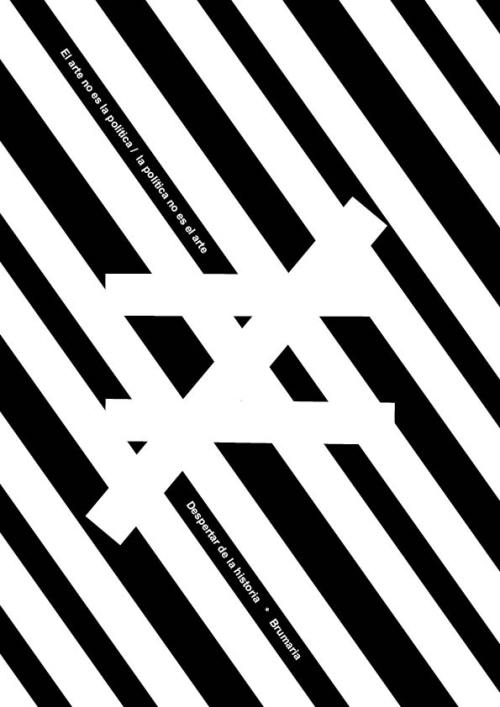Workgroup on Art and Politics

Approach
Art ≠ Politics/ Politics ≠ Art. The awakening of history
Art is not politics/politics is not art. Nothing is new, yet there’s nothing old about Brumaria´s claim. The art-politics distinction, and its combinations, extends from Plato and Aristotle through the times of Kant, Hegel, Proudhon, Marx, Nietzsche, and Heidegger, running through the history of philosophy, politics and aesthetics.-
This is not about unfolding an event because if the event is a multiple complete or multiple unfounded development, it is already unraveled. This is about awakening history to the truth, a phenomenal exception that allows us to scrutinize and see the light of the event. Only in this way will we be able to ask and respond to questions such as ¿How can the historical multiplicity of politics be organized differently? ¿How can the historical multiplicity of art be organized differently if the truth appears as a supernumerary connection to randomness and eternity?
For this reason, we should always consider the three basic orientations of twentieth century thought: psychoanalysis, Marxism and phenomenology and their current reinventions.
Because of all of the above, we are proposing a workgroup with multiple formats, to be located in Medialab-Prado, that will try to elucidate an untimely matter that is directly related to our current reality. The formal and open group is essential to bringing together collaboratively the essential theoretical work that will allow us to see clearly in these dark times. On another note, time and the sharing of thoughts are also fundamental to the running of the group: once something said is problematized, it will serve as a basis for a future joint conversation. The questions, suspicions, prejudices, and above all resistances (If there is resistance there is thought) aroused in one session will dovetail into another session, and so on. Nothing is obvious.
It is the time to go over the precepts and accepted truths on the art/politics relationship currently in vogue in museums, art centers, universities, biennials, Internet, fairs, encounters, publications and on job settings. We are interested, and think it necessary, to clarify these precepts and truths.
For instance, we understand that granting ontological status to the unique 15M event is politically and artistically disastrous. It would be a banality to say that politics is not art and that art is not politics. Because of their differences in terms of location, effect and production, subject and object, etc., they could not be joined together. However, very good art can be made with politics and good politics can be made with art. This happens when one is aware of what is being done and where it is being done, and when one is careful not to mix these disciplines and risking a loss of truth in both procedures.
We believe that so-called political art should be rethought time and again in order to reach a point in which new truths are found. Contemporary art today is criticizing itself and creating an artistic critique of art.
It is still of considerable interest that significantly political and counter-hegemonic artists agree with what the dominant ideology has sustained: the evidence that only bodies and language exist. This is an obviousness that has been imposed through the constant denial of historical reality, where a topological interruption of events and truths has occurred.
At Brumaria we are facing this period of historical reopening with urgency in order to construct an ideological proposition that addresses the arts and politics, with a significant hypothesis and a strong point of departure: politics is not art and art is not politics. With this in mind, one of the first questions that this suggests is the following: From an art or politics perspective, how can one declare the end of all ends, or the possible beginning of what was, is, and will be?
> Descargar bibliografía recomendada
Formulario de inscripción
Tipo de post
BlogPublication date
10/07/2013


 Medialab-Matadero Madrid
Medialab-Matadero Madrid
